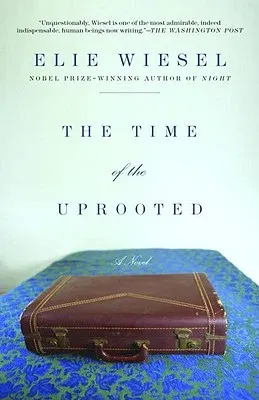Elie Wiesel
(Author)The Time of the UprootedPaperback, 6 February 2007

Qty
1
Turbo
Ships in 2 - 3 days
In Stock
Free Delivery
Cash on Delivery
15 Days
Free Returns
Secure Checkout

Print Length
320 pages
Language
English
Publisher
Schocken Books Inc
Date Published
6 Feb 2007
ISBN-10
0805211772
ISBN-13
9780805211771
Description
Product Details
Author:
Book Format:
Paperback
Country of Origin:
US
Date Published:
6 February 2007
Dimensions:
20.45 x
13.28 x
2.08 cm
ISBN-10:
0805211772
ISBN-13:
9780805211771
Language:
English
Location:
New York, NY
Pages:
320
Publisher:
Weight:
335.66 gm